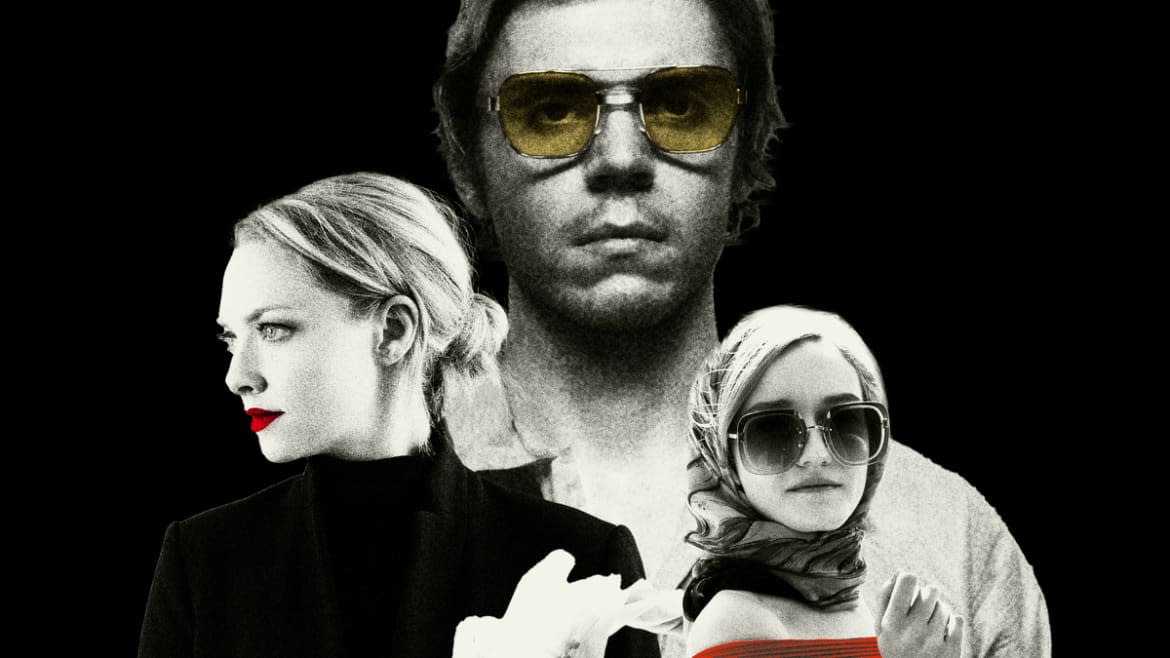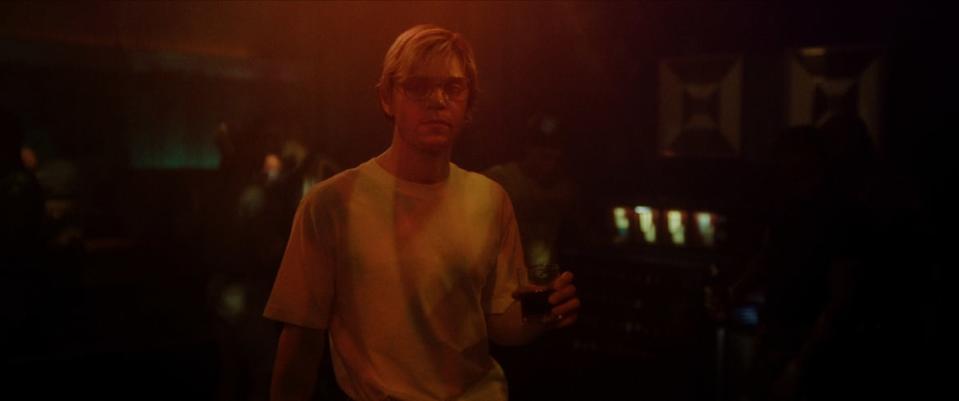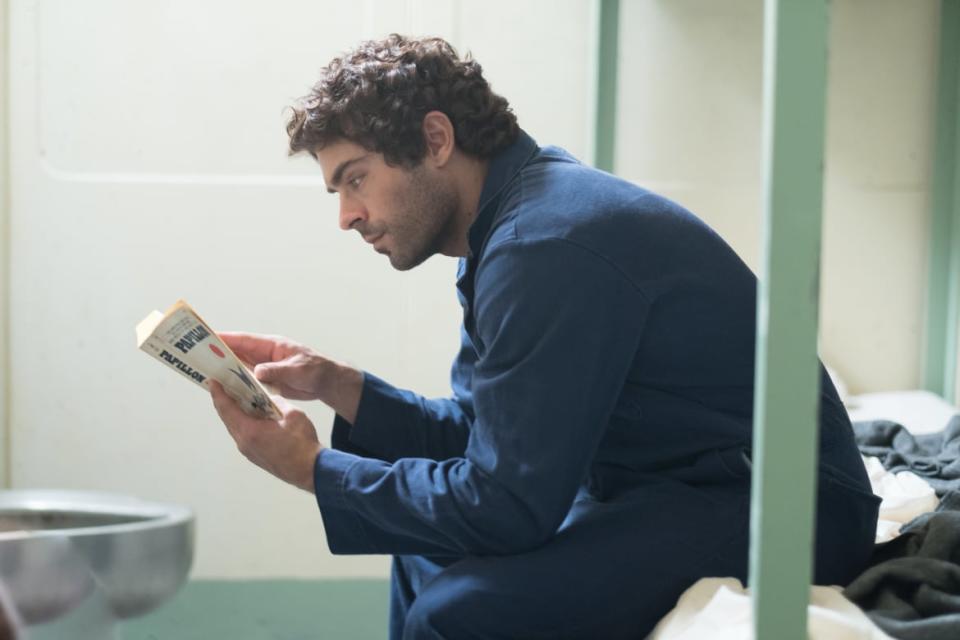I’m Done Watching True Crime Romanticizing White People—And That’s Most of It

Jeffrey Dahmer is the latest leading man on Netflix. His name is a familiar one to many viewers, especially fans of true crime. But the details of what he did have been obscured by time; I was a very young child when Dahmer was nearing the end of his reign of terror, inflicted primarily on Black people.
Monster: The Jeffrey Dahmer Story is both a standard entry in the true crime genre and a unique one. Instead of unfolding from the killer’s perspective, the Netflix drama details the heinous nature of Dahmer’s actions through the true story of Glenda Cleveland, a Black woman and his former neighbor. It’s heartening to learn that a Black woman was the one to recognize Dahmer for who he was and sought to do something about it. But, it’s also infuriating—and tragically familiar—to know that her reports of Dahmer’s misdeeds repeatedly fell on deaf ears.
‘Monster: The Jeffrey Dahmer Story’ Is Ryan Murphy’s Creepiest Show Yet
After Dahmer’s arrest in 1991, Reverend Jesse Jackson traveled to Milwaukee, where Dahmer lived, and commented on the police’s failure to listen to Cleveland. “Police chose the word of a killer over an innocent woman,” he said in an interview at the time. Perhaps the words “white” and “Black” were implied then, as Jackson referred to the long-held racialized power dynamics of our legal system. But they deserve to be explicitly stated: A white lie often holds more weight than a Black truth.

Whiteness and its cloak of innocence rendered a Black woman voiceless, resulting in the deaths of five more people before Dahmer would be apprehended. But I only know all of this from doing my own research. I no longer watch these ripped-from-the-headlines dramas about white people perpetuating crimes—I refuse to.
It’s a choice that aligns with my decade-long practice of limiting my interactions with white people as much as possible. I left the overt racism of the Midwest for the more covert racism of New York City. I lived in Harlem: increasingly gentrified but historically and still predominantly Black. I worked for a Black-owned company and married a Black man. White people became less and less of a present threat.
Living in New York, I’d listen to friends and family talk of micro- or macro-aggressions they experienced from white people. I’d always respond with weak platitudes like, “Damn,” or “That’s crazy.” But in my head, I’d think: “Can’t relate.” The reach of whiteness in my life had become more like an overcast sky than a dense fog. It cooled the warmth of the world, but it didn’t hamper my day-to-day movements.
Still, whiteness is never far away. And while white people weren’t a part of my life, I allowed them to creep into my entertainment.
In the past decade, I’ve watched dozens of documentaries, TV specials, and movies about white people and their crimes. I started with stories about captivating cult leaders, à la Jim Jones and Warren Jeffs. I wanted to know what these men had said and done to convince people to follow them at the expense of their children, their freedom, and, in some cases, their lives.
Instead of feeling satisfied with the answer, I’d finish each project feeling sickened by what I’d see. I immediately would need to watch good white folks on shows like The Golden Girls instead, to rid my mind of images and ideals which reflected the very worst of humanity.
It would have made sense for me to tap out of these true crime dramas and docs a long time ago. But as studios and streaming services kept pumping them out—from All Good Things to Icarus, Framing Britney Spears, and Bad Vegan, plus more innocent fare like White Hot: The Rise & Fall of Abercrombie & Fitch—I’d always come back for more. I devoured both Netflix and Hulu’s Fyre Festival documentaries. I watched HBO’s The Inventor in shock. During the early days of the pandemic, I laughed alongside the rest of the world, as we made light of the moral failings against man and beast in Tiger King.

That year shifted so much in the world, including my watchlist. By the end of 2020, I was pregnant and the one-bedroom, occasionally roach-ridden apartment my husband and I shared in the Bronx became unsuitable. I couldn’t rationalize raising a child there. After a month or two of searching, we found a duplex in Whitestone, Queens.
The name of the area was an omen. In the weeks after the move, I overheard some of our neighbors having a conversation about the “unnecessary” nature of the Black Lives Matter movement. One person stated that he didn’t understand why Black folks wanted to play victim, when they were the ones perpetuating the most hate crimes against the Asian community.
I cradled my stomach, horrified by the fact that my unborn child’s neighbors were not only racist but also deeply misinformed. Despite viral internet videos, the majority of anti-Asian hate crimes are committed by white people. In fact, white people are the greatest perpetrators of all hate crimes, the majority of which are anti-Black in nature.
There’s a reason the people next door were so loud and wrong about the nature of hate crimes. Black people are over-surveilled. There’s a saying that when you’re Black, you’re never alone, because there will always be a white person in your business. I know that’s the case in our neighborhood. Walks with my son become an opportunity for passersby, who’ve rarely exchanged greetings, to make comments about everything from his attire to the way I’ve chosen to carry him that day. Even picking up my delivery order at a nearby restaurant can put me face-to-face with predominantly white diners, silenced and suspicious by my entry. They regard me with varying degrees of unwelcome: from curiosity, to concern, to disgust.
It’s clear to me that these comments and reactions are meant as reminders that as Black people, we are always being watched. Meanwhile, white people live largely unmonitored in the world. The criminal among them get away with so much because no one thinks to question white folk. Whiteness excuses them from distrust.
This is a foreign existence to most Black people in this country. The thought of me living the type of unobserved life needed to sustain any type of long-term criminal activity is preposterous. While I have no desire to steal, violate or kill people—or commit any other crimes—it would be nice to know the privilege of presumed innocence and inherent goodness that white people experience, even when they don’t deserve it.
With my unpleasant reintroduction to the ways of white folk, it’s become increasingly difficult to derive anything valuable from these true crime stories that once captivated me. It’s hard to be entertained by something that stings of the realities of your own existence and the lived experiences of so many Black women. Netflix practically taunted me with its intimate doc Conversations With A Killer: The Ted Bundy Tapes and, later, its biopic starring an unsuitably handsome Zac Efron. I deftly avoided both. Still, I couldn’t escape the sickening conversation about his supposed attractiveness. People went out of their way to ascribe virtue to whiteness, even when it was the picture of evil.

Even when white people are justified in their crimes, the shows are still hard to stomach. In I Just Killed My Dad, released on Netflix this past summer, Anthony Templett talks about killing his abusive father. I didn’t watch this one either. I’m serious about my commitment. But from what I hear, Templett’s was a righteous crime, one worthy of absolution. Templett, as the doc suggests, admitted to the murder. He pleaded guilty to it. And today, he is a free man. As a special condition of his sentence, he was allowed to earn his high school diploma, attend counseling, and even find gainful employment. And he was given a voice in the interviews he completed for a documentary hosted by one of the world’s largest streaming services.
One Teenager’s Disturbing Reason for Killing His Own Dad
I can’t help but lament the fact that these types of second chances are rarely extended to Black people. Chrystul Kizer killed her sexual abuser just a year before Templett killed his father, in 2019. Despite years’ worth of documentation about his predatory and criminal behavior, Kizer is still awaiting trial. There’s no word on whether she’ll be afforded the same empathy that Templett received. You probably don’t know Kizer’s story, because it hasn’t appeared in a splashy docuseries or film. Similar to our justice system, the plights of Black people, whether they’re criminals or victims, don’t elicit the same intrigue or empathy.
When Black folks’ stories are repackaged for our entertainment, the result can be damaging. It was the cousin of one of Dahmer’s victims who publicly declared Monster “retraumatizing.” Eric Thulhu, cousin of 19-year-old victim Errol Lindsey, shared that Netflix didn’t request permission to share this painful moment in their familial history. Instead of affording the aggrieved a chance to speak publicly about their trauma in a safe way, the streaming service went an exploitative route with reenactments. Even if Monster tries not to romanticize the killer at the victims’ expense, this production choice is telling. What does it say about our priorities and regard for Black life when a family’s suffering can be used to attract more viewers?
While this cousin wouldn’t go so far as to tell people what they should and shouldn’t watch, they posed two poignant questions. “How many more true crime stories do we need?” Thulhu tweeted, shortly after Monster’s release. “And for what?”
Jeffrey Dahmer was eventually punished for his actions, first through incarceration and later through the revenge killing at the hand of a fellow inmate. He’s not the only white criminal to face the consequences for his actions, of course. But I fear that these shows, whether documentaries or fictionalized takes, issue a type of sick notice to white audiences. They remind them of their complexion for protection, even against the consequences of their own depravity. Commit a crime, and go down in infamy with a Netflix documentary.
For people like me—Black women and other people of color—the true crime phenomenon is a reminder that while we’re being watched, questioned, and regarded with contempt for getting dinner, white folks are literally and figuratively getting away with murder. Instead of calling it for what it is—a travesty—we call this content “binge-worthy.” Monster is currently Netflix’s most popular show.
Personally, I’ve had enough.
Get the Daily Beast's biggest scoops and scandals delivered right to your inbox. Sign up now.
Stay informed and gain unlimited access to the Daily Beast's unmatched reporting. Subscribe now.